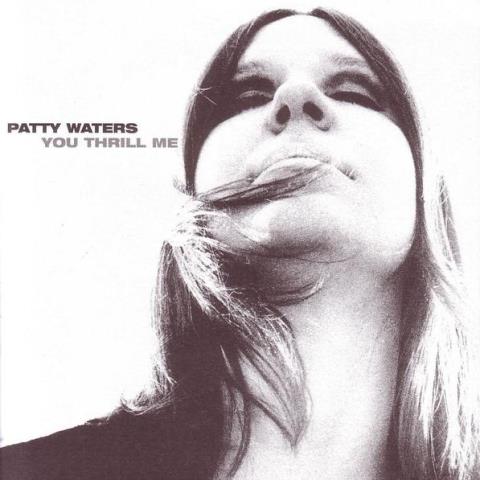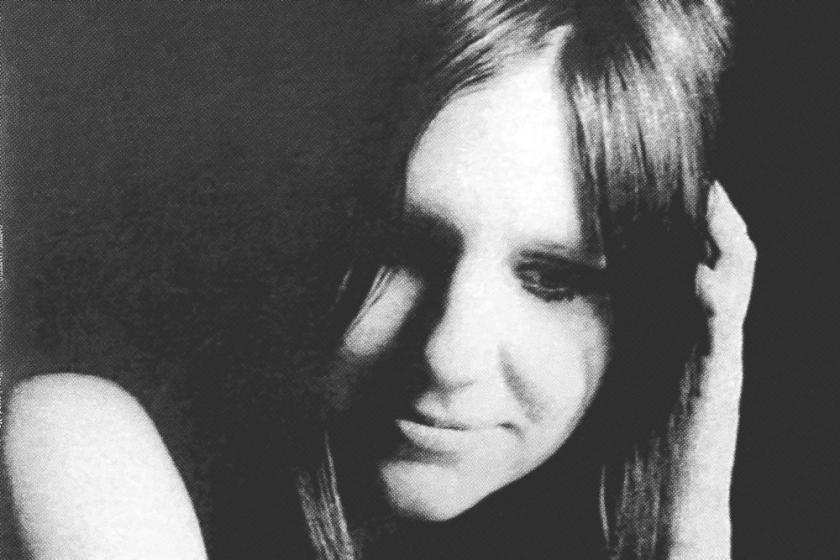“Touched by Rodin in a Paris Museum” is a 14-minute consideration of exactly what its title says: the impact of encountering Auguste Rodin’s work in person. The composition features piano only. There are nods to Debussy and Ravel. The playing is measured and minimal yet still full-bodied. At odd points, there are seconds of complete silence.
Taped in 1970, this recording was meant to feature on an album which was never issued. It would have been the third by Patty Waters, following-up her ESP-Disk LPs Sings (1965) and College Tour (1966). After these, Waters seemed to have vanished. Actually, she had moved from New York to Europe and then settled in California in 1969 to focus on her family. Nonetheless, a year after the birth of her son, she was at San Francisco’s Coast Recorders studio in 1970 where six tracks for a proposed album were completed.
 Before this, Waters’ musical calling card was her ever-astonishing version of “Black is the Color of my True Love's Hair” which appeared on Sings. The rest of the album – and College Tour – was less unusual but one listen to both releases makes it obvious she was a deeply significant auteur jazz vocalist. Indeed, Albert Ayler heard her in New York, was duly bowled over and brought her to ESP-Disk.
Before this, Waters’ musical calling card was her ever-astonishing version of “Black is the Color of my True Love's Hair” which appeared on Sings. The rest of the album – and College Tour – was less unusual but one listen to both releases makes it obvious she was a deeply significant auteur jazz vocalist. Indeed, Albert Ayler heard her in New York, was duly bowled over and brought her to ESP-Disk.
Yet “Touched by Rodin in a Paris Museum” has no vocal. It is a pure musical contemplation where words are unnecessary. On the shelved album’s other five tracks, Waters does sing. “I Love You Honey” is declaration which needs no elaboration. The same applies to “At Last I Found You,” “Love is the Warmth of Togetherness,” “Please Make Love to me” and “At Last I Know I Belong to You.” Though Waters’ voice has a restraint, each is intensely expressive and her piano accompaniment has the space intrinsic to “Touched by Rodin in a Paris Museum.” All the songs are her own – there are no cover versions (the lyrics of “Love is the Warmth of Togetherness” are co-written with Donna Stonebraker).
All six tracks first surfaced on the 2004 Patty Waters archive CD compilation You Thrill Me. As they were interspersed throughout the running order, it was hard to get a feel of what the 1970 album might have been. Last year, Waters herself issued them digitally as Plays and now, with You Loved Me, they're on vinyl for the first time. Further tracks on the album include a shelved 1974 single “My One and Only Love” and “My Man’s Gone Now” which is added onto the end of Side One – these were also digitally issued by Waters, in 2019. Two other bonuses are “Moon Don’t Come up Tonight” and “I Love You Honey,” which both follow “Touched by Rodin in a Paris Museum” on Side Two. These were recorded live at San Francisco’s Lone Mountain College in 1974 and are previously unheard (the audio is taken from a film of performance). The best strategy with You Loved Me is to flip to Side Two after “At Last I Know I Belong to You” to preserve the 1970 experience.
 Conceptually, this unreleased album has parallels with Sings. Side One of the 1965 album comprised Waters’ originals where she accompanied her voice on piano. So does this. Side Two of Sings also featured one long piece, the 13-plus minutes of “Black is the Color of my True Love's Hair.” As College Tour was a live album, it’s possible to see what’s become You Loved Me as the natural successor to Sings. (pictured left, the 2004 You Thrill Me compilation, the first time the unreleased 1970 album was issued)
Conceptually, this unreleased album has parallels with Sings. Side One of the 1965 album comprised Waters’ originals where she accompanied her voice on piano. So does this. Side Two of Sings also featured one long piece, the 13-plus minutes of “Black is the Color of my True Love's Hair.” As College Tour was a live album, it’s possible to see what’s become You Loved Me as the natural successor to Sings. (pictured left, the 2004 You Thrill Me compilation, the first time the unreleased 1970 album was issued)
While the Coast Recorders tracks are enormously powerful and primal and have to be heard, they raise questions. The liner notes of You Loved Me do not explain if they were recorded with an outlet in mind. Had Waters connected with a label? These pieces must have been composed and then honed over time. The incantory voice and playing are precise – clearly, formulation had taken place. This background is also not addressed, as is why the album was not issued.
Had these astounding recordings been released, it’s likely recognition of Waters’ importance as a jazz auteur would have gained further traction. However, they were not. Even so, and without these tracks being issued, Rolling Stone praised her in May 1971 saying she was “one of the best fucking singers alive.” You Loved Me is a welcome reminder that the story continued between Sings, College Tour and her re-emergence as performer and recording artist in the mid 1990s. Get this, it’s essential.
- Next week: Deep-digging John Barry collection The More Things Change - Film, TV & Studio Work 1968-1973
- More reissue reviews on theartsdesk
- Kieron Tyler’s website















Add comment